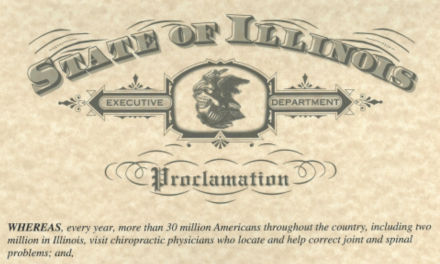
Marketing Pitfalls That Can Cost You and Your Practice

Editor’s Note: Originally posted on 9/1/2012. Updated with OIG’s 12/7/2016 Statement Regarding Gifts of Nominal Value (full text here).
In the last several months I have received multiple phone calls from members asking what they can say or do when marketing their practice. As small business owners, Chiropractic Physicians usually market themselves and their practices to build and retain their patient base. There are several ways doctors market their services including: Advertising (television, internet, yellow pages or other forms of media), screenings, free giveaways, open houses, business cards, pamphlets, website, coupons, the name of your practice, your signage, and even your own words.
Marketing your office can result in new patients, reactivations and better patient compliance resulting in an increase in your overall revenue. However, as physicians, we cannot market our practice like a local flower shop or grocery store. Before you market your practice, you MUST understand all the state, federal and 3rd party payers laws, guidelines and medical policies; otherwise, you may be faced with legal problems, fines and/or sanctions. In Illinois, advertising violations are the number one reason for license investigations for chiropractic physicians. In this article, I am going to address many of the marketing mistakes that chiropractors make.
Routinely Waiving Co-pays and Deductibles
Routinely waiving copays and deductibles for any patient who has a government-run health care program can result in fines, penalties, and sanctions. The Office of Inspector General (OIG) says that “routine waiver” of deductibles or co-payments by a charge-based practitioner are unlawful. These offers can result in “false claims,” anti-kickback statute violations, and the unnecessary use of items and services. Advertising or offering “no out of pocket expense” or “insurance payments accepted as payment in full” is fraudulent and contrary to Illinois law.
Most other 3rd party payers also have guidelines on waiving co-pays and deductibles, so it is important to read your signed contract. Practitioners who wave co-pays and deductibles are misstating the actual charge to a third party payer. For example, if a provider charges $50.00 for a service but routinely waves the patient’s co-pay (for example S20.00) then the actual charge for the service was $30.00 instead of $50.00. This results in the falsification of the actual cost and a potential “false claim.” The OIG views the following advertising/wording as indications of improper waiver of deductibles and copayments:
- Advertisements stating: “Medicare accepted as payment in full,” “insurance accepted as payment in full” or “no out-of-pocket expense.”
- Advertisements promising that “discounts” will be given to Medicare beneficiaries.
- Routine use of “financial hardship” forms, which state that the beneficiary is unable to pay the co-insurance/deductible, where there is no good-faith attempt to determine the beneficiary’s actual financial condition, where the income scale used was not derived from valid statistical data, or where such forms are not offered to all patients equally.
- Collection of co-payments and deductibles only when the beneficiary has Medicare supplemental insurance (Medigap) coverage.
- Charges to Medicare beneficiaries that are higher than those made to other persons for similar services and items (the higher charges offset the waiver of co-insurance.)
- Failure to collect co-payments or deductibles for a specific group of Medicare patients (e.g., a supplier waives co-insurance or deductible for all patients from a particular hospital, in order to get referrals).
- “Insurance programs” that cover co-payments or deductibles only for items or services provided by the entity offering the insurance. The “insurance premium” paid by the beneficiary is insignificant and can be as low as $1 a month or even $1 a year. These premiums are not based upon actuarial risks, but instead, are a sham used to disguise the routine waiver of co-payments and deductibles.
Waiving co-pays and deductibles also sets up a dual fee system because the physician is charging different amounts for the same service. Having a dual fee system violates most state and federal laws again resulting in fines, sanctions and/or disciplinary actions.
Gifts and Inducements
The OIG states under section 1128A(a)(5) of the Social Security Act (the Act), enacted as part of Health Insurance Portability and Accountability Act of 1996 (HIPAA), that Medicare or Medicaid providers are prohibited to offer beneficiaries anything other than inexpensive gifts or services. For enforcement purposes, inexpensive gifts or services are those that have a retail value of no more than $15 individually, and no more than $75 in the aggregate annually per patient. Offering valuable gifts to beneficiaries to influence their choice of a Medicare or Medicaid provider raises quality and cost concerns. Providers may have an economic incentive to offset the additional costs attributable to the giveaway by providing unnecessary services or by substituting cheaper or lower quality services.
Gifts and inducements come in many forms including: coupons or promotions for a reduced rate or free exams and x-rays, screening (spinal, blood pressure or foot scans), free dinners, movie passes, chances for a drawings for prizes for referrals and any other item or promotion that has a fair market value that is greater than $15.00. According to the OIG, a gift or inducement is any offer of valuable (i.e., not inexpensive) goods and services as part of a marketing or promotional activity, regardless of whether the marketing or promotional activity is active or passive.
For example, even if a provider does not directly advertise or promote the availability of a benefit to beneficiaries, there may be indirect marketing or promotional efforts or informal channels of information dissemination, such as “word of mouth” promotion by practitioners or patient support groups. In addition, the OIG considers the provision of free goods or services to existing customers who have an ongoing relationship with a provider likely to influence those customers’ future purchases. Any marketing promotion that offers a gift or inducement must have a disclaimer that it “Excludes Medicare, Medicaid, and other federally funded programs.”
Offering discounted or free examinations and x-rays could also place you out of compliance with other third parties contracts you have signed. It is important to read and understand the medical policies and contracts of any insurance company that you are a provider. When offering free or discounted x-rays it is important to make a statement that x-rays will only be provided if determined to be medically necessary so patients are not exposed to unnecessary radiation.
Offering gifts or cash for patient referrals or for patient visits would be an anti-kickback violation and against public policy in Illinois. The anti-kickback statute penalizes anyone who knowingly and willfully solicits, receives, offers or pays remuneration in cash or in kind to induce, or in return for referring an individual to a person for furnishing, or arranging for the furnishing, or any item or service payable under Medicare or Medicaid program. The same conduct could violate the state fee splitting statute with regard to services provided to any patients, not just Medicare or Medicaid patients.
Spinal or other screenings might also be seen as an inducement with federally funded programs. If you are doing screenings as a public service, for example, a free blood pressure check, it may not be considered an inducement. However, if you are using the screening process (i.e. services worth more than $15) to generate patients in order to sell supplies or perform services you could be violating the anti-kickback statute.
Other Advertising Violations
The American Chiropractic Association’s code of ethics states, “Doctors should exercise utmost care that advertising is truthful and accurate in representing the doctor’s professional qualifications and degree of competence. Advertising should not exploit the vulnerability of patients, should not be misleading and should conform to all governmental jurisdictional rules and regulations in connection with professional advertising.” Deceptive and misleading marketing techniques may not only violate federal and state laws they could result in a potential lawsuit. All marketing promotions should be fact-based, and a patient should never feel pressured into treatment. The following are some examples of misleading marketing:
- Claiming success rates that cannot be proven in a court of law or in front of the state board;
- Stating areas of expertise without credentials;
- Intimidating patients into care using scare tactics;
- Making claims that treatment is “pain-free”, “without side effects” or “guarantee;”
- Claiming cures for conditions without credible research to prove the claims;
- Using statements such as “Medicare approved” or “Treatment approved by Medicare.” Just because you are a Medicare provider does not mean you are approved by Medicare;
- Listing your name and advertisement in the wrong section of the Yellow Pages, without your title or with the wrong title; and
- Advertising services that you do not do in your office just to get patients in the door.
Additionally, you must use the title “D.C.” or “Chiropractic Physician after your name in all marketing promotions. The Department of Financial and Professional Regulation considers omitting one’s title to be a violation of the Medical Practice Act.
Severe fines, penalties, and disciplinary actions can result from deceptive, misleading or illegal advertising. Waiving of copayments and/or deductibles, providing free services and products and offering gifts and inducements can result in civil penalty of up to $10,000 for each wrongful act. Penalties under the Federal False Claims Act include civil penalties of $5,000 to $11,000 plus three times the claim, possible exclusion from government healthcare programs and possible criminal prosecution. Violating the anti-kickback statute is a felony and can result in imprisonment for up to five years, exclusion from federally funded programs and civil monetary penalties up to $50,000 per violation and damages three times the remuneration involved. In addition, your license could be disciplined and fined up to $10,000 per violation. These and other disciplinary actions can result from advertising errors.
The bottom line is to know what you can and cannot do in marketing. Do not mislead or deceive patients. Make sure if you offer discounts, free services, or other promotions that it is allowed any 3rd party payer with which you are a provider.
Editor’s Note: The information contained in this article is for educational purposes and is not intended to be and is not legal advice. Kristen Curtis DC does not engage in providing legal services. If legal services are required, the services of a healthcare attorney should be attained. The information in this article is for educational purposes only and should not be construed as written policy for any federal agency or private health care insurance agency. Kristen Curtis DC assumes no liability for data contained or not contained in this article and assumes no responsibility for the consequences attributed to or related to any use or interpretation of any information or views contained in or not contained in the article.
References
- Office of Inspector General Special Advisory Bulletin, Offering Gifts and Other Inducements to Beneficiaries, August 2002
- Section 1128A(a)(5) of the Social Security Act















